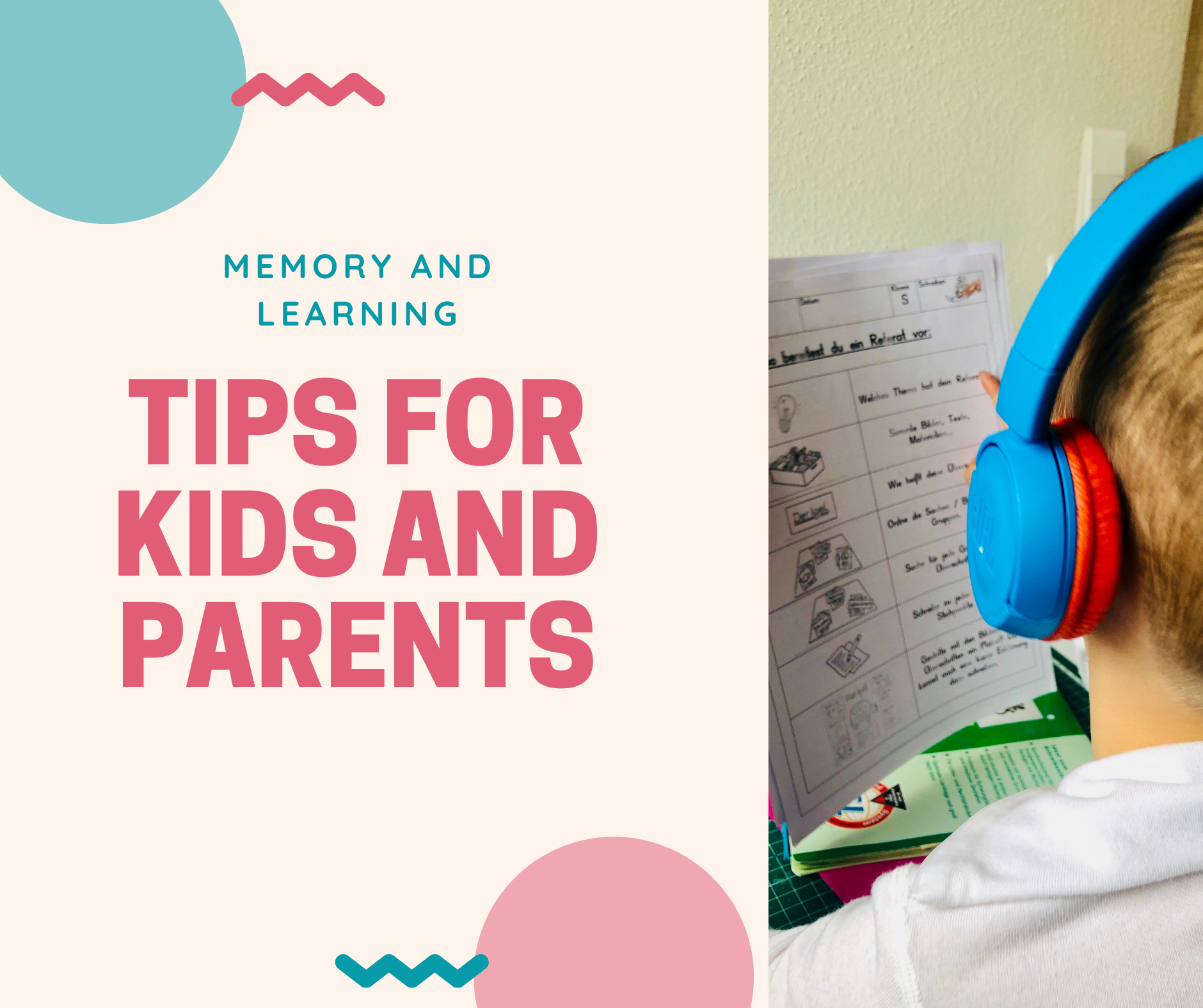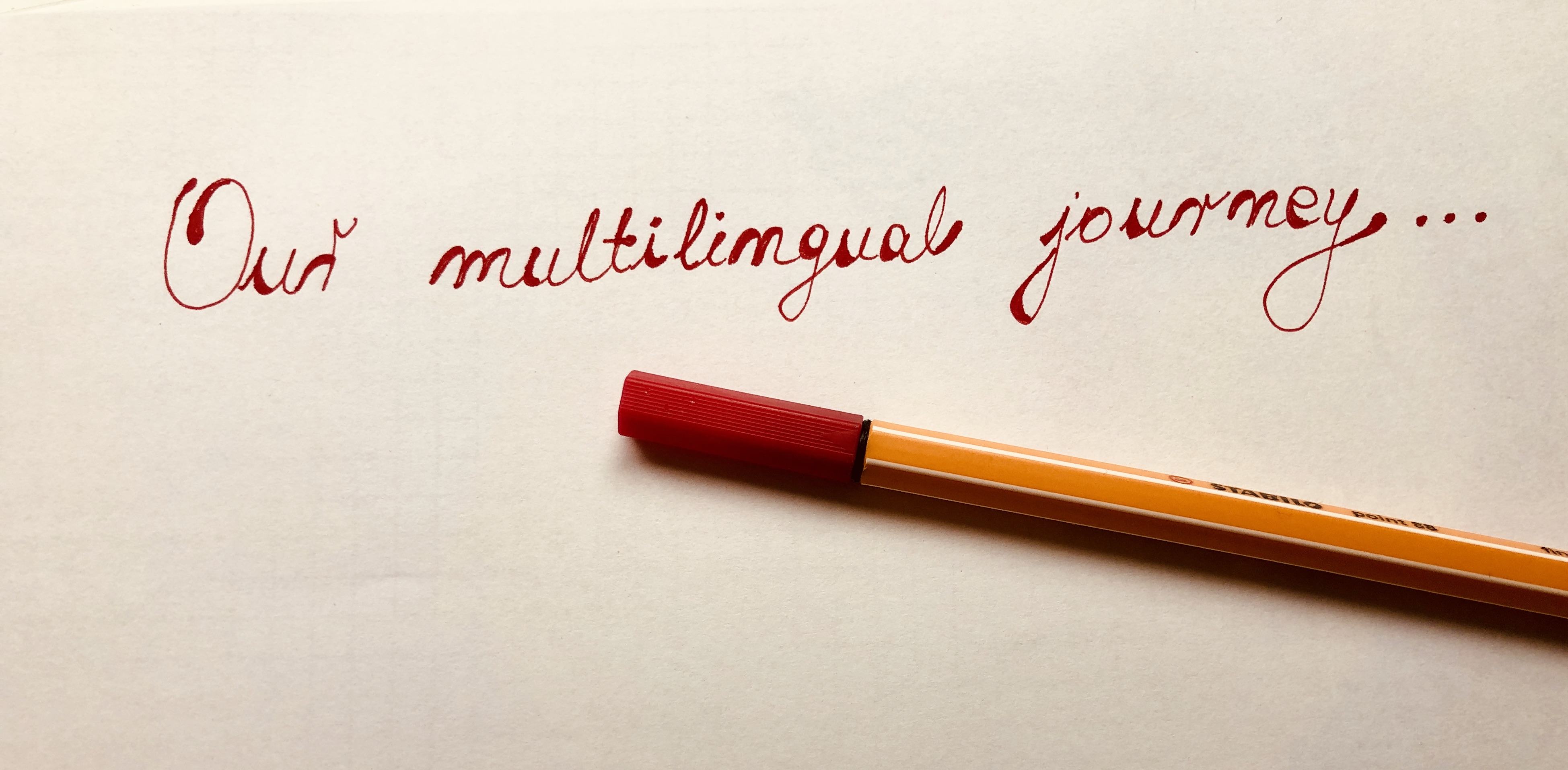Learning Numbers: DIY Memory Game for Toddlers and Pre-Schoolers
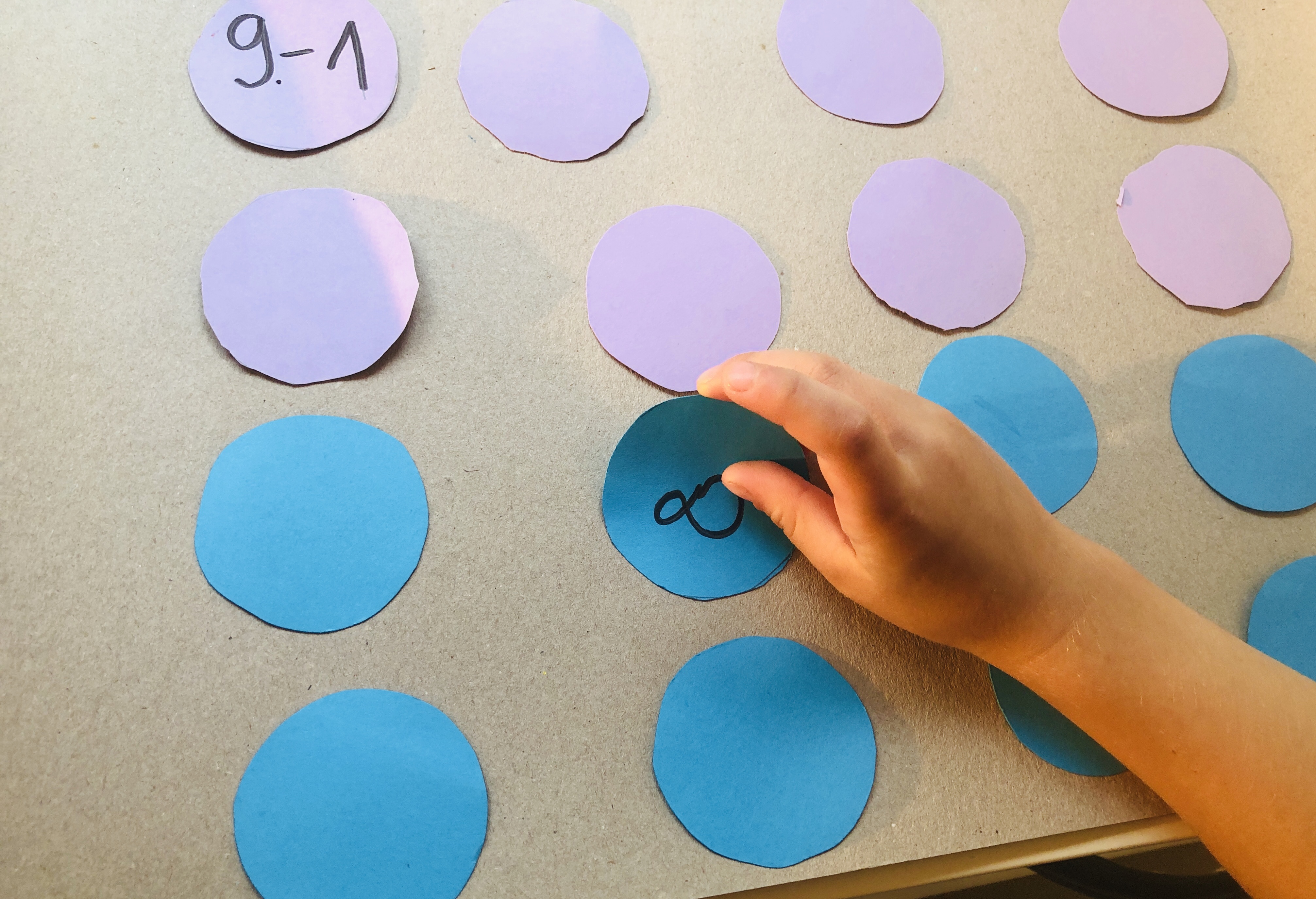
Memory, concentration, addition and subtraction - this game has it all. And if you decide to make your own, add some cutting and writing to the list of activities children do to make this game.
There are many variations, depending on the age of the kid. From number recognition, understanding quantity, adding, subtracting, multiplying, to reading.
Interesting facts about numbers:
- The number 2 is also the smallest and first prime number.
- Different cultures discovered zero at different times.
- There is only one number spelled with the same number of letters as itself. Can you guess which one? F_O_U_R
My kids, especially Einstein E, love playing with numbers. So, this game we made together.
Materials:
- construction paper (two colours)
- scissors and markers
Step 1.
Draw circles and cut them out. We used blue and purple construction paper - 8 blue circles for the results, and 8 purple for the basic operations.
Drawing circles using a lid also fosters eye-hand coordination and fine-motor skills. So does cutting the circles out.
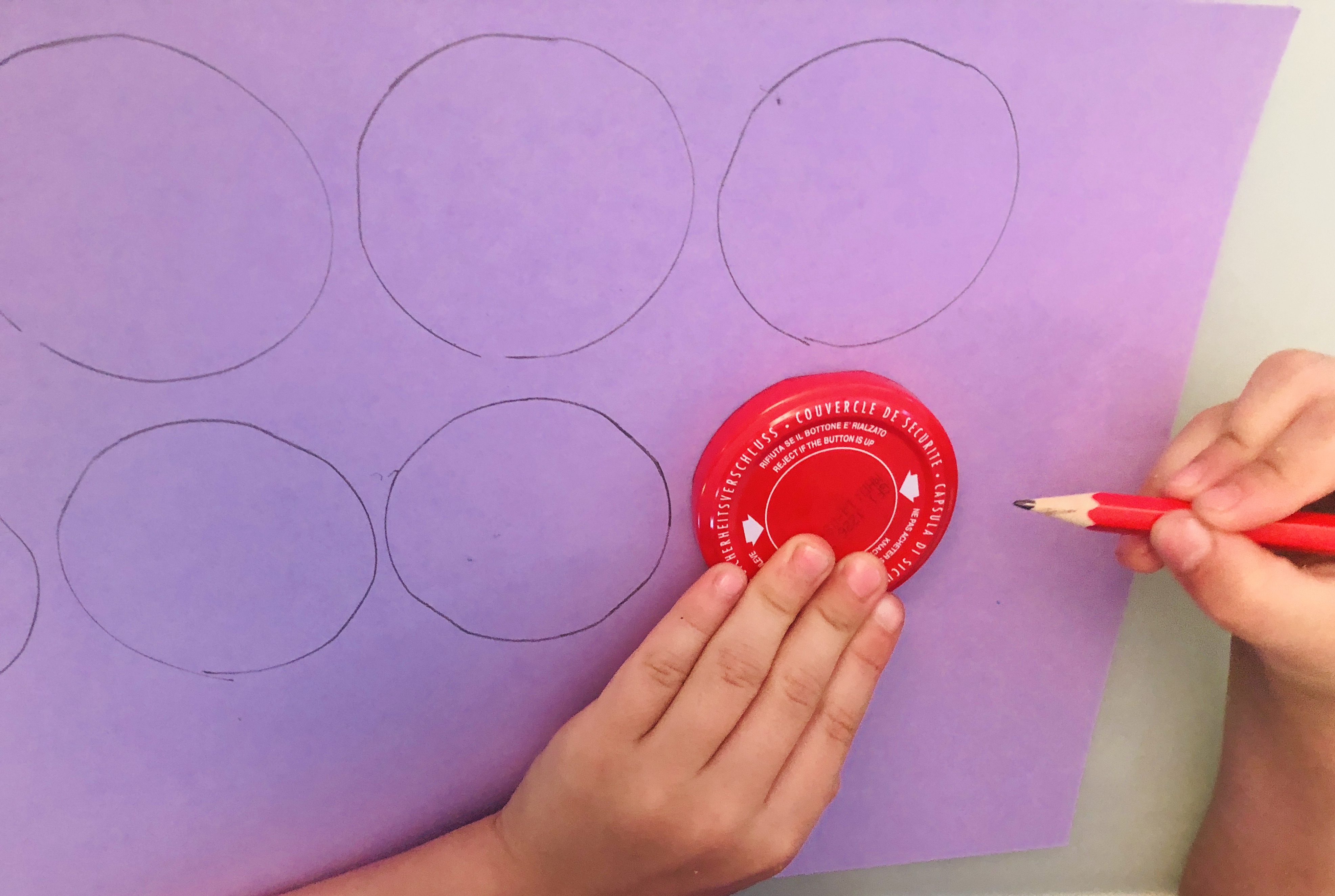
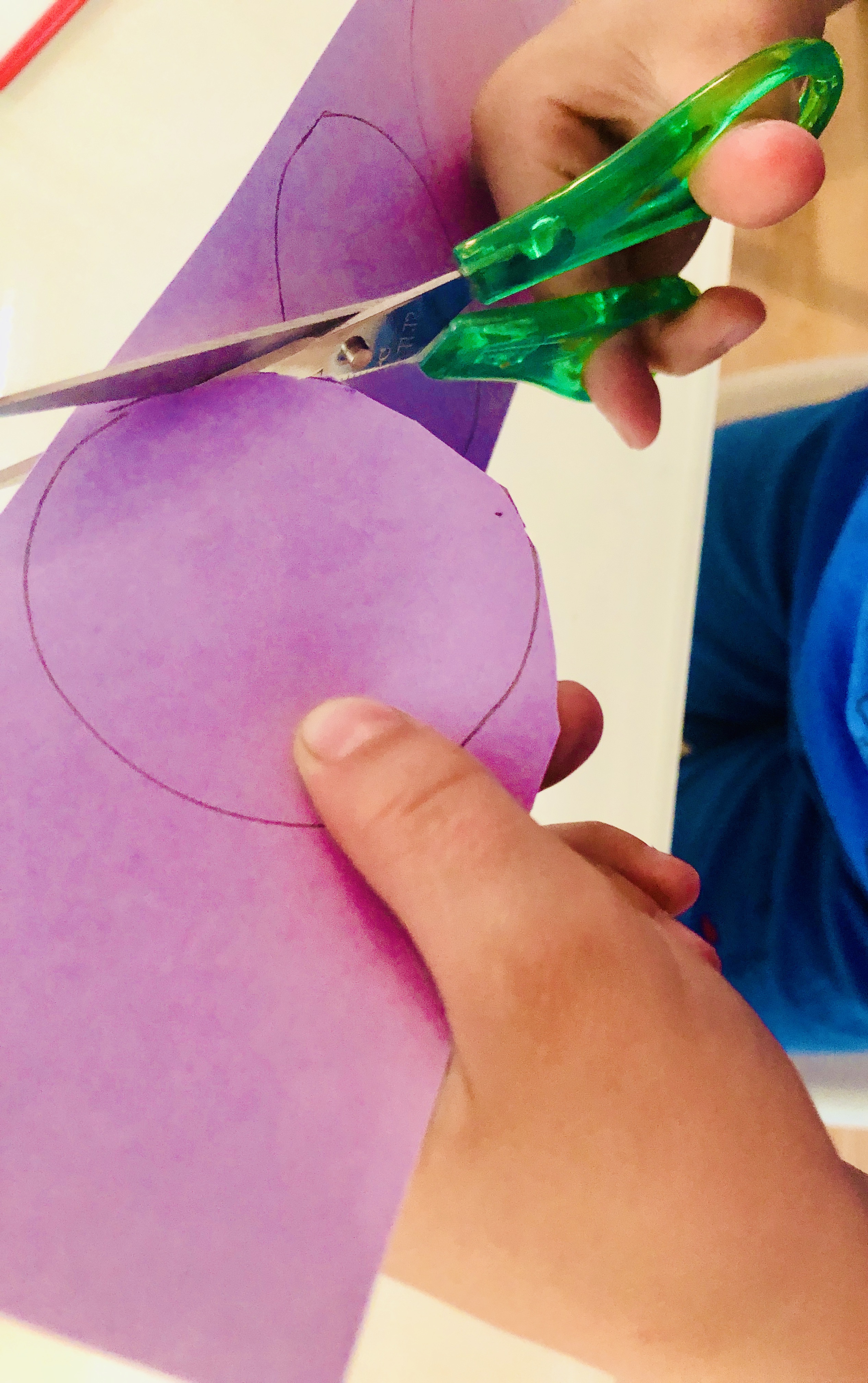
Step 2.
The first time we made this game, I was writing the operations, and Einstein E was writing the results. For the second game, he did both.
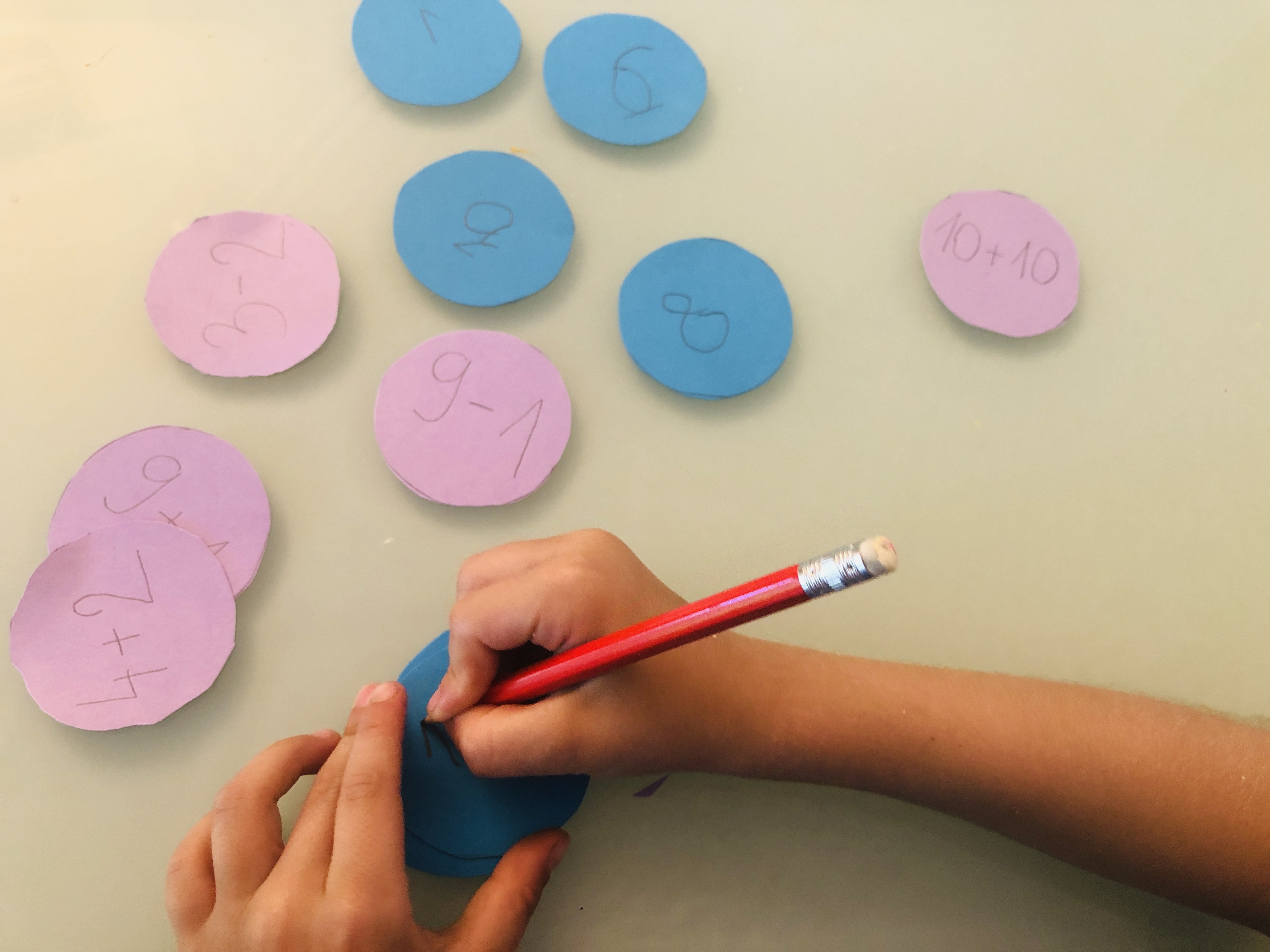
Step 3.
Play away :)
Lay the cards in rows. First, turn over a card with an operation (adding or subtracting). Remember: Counting on fingers is an effective strategy to support children's early math learning and it plays an important role in learning and understanding arithmetic.
Then, turn over a card with a result. If they match, keep the cards. If they don't, turn them back over.
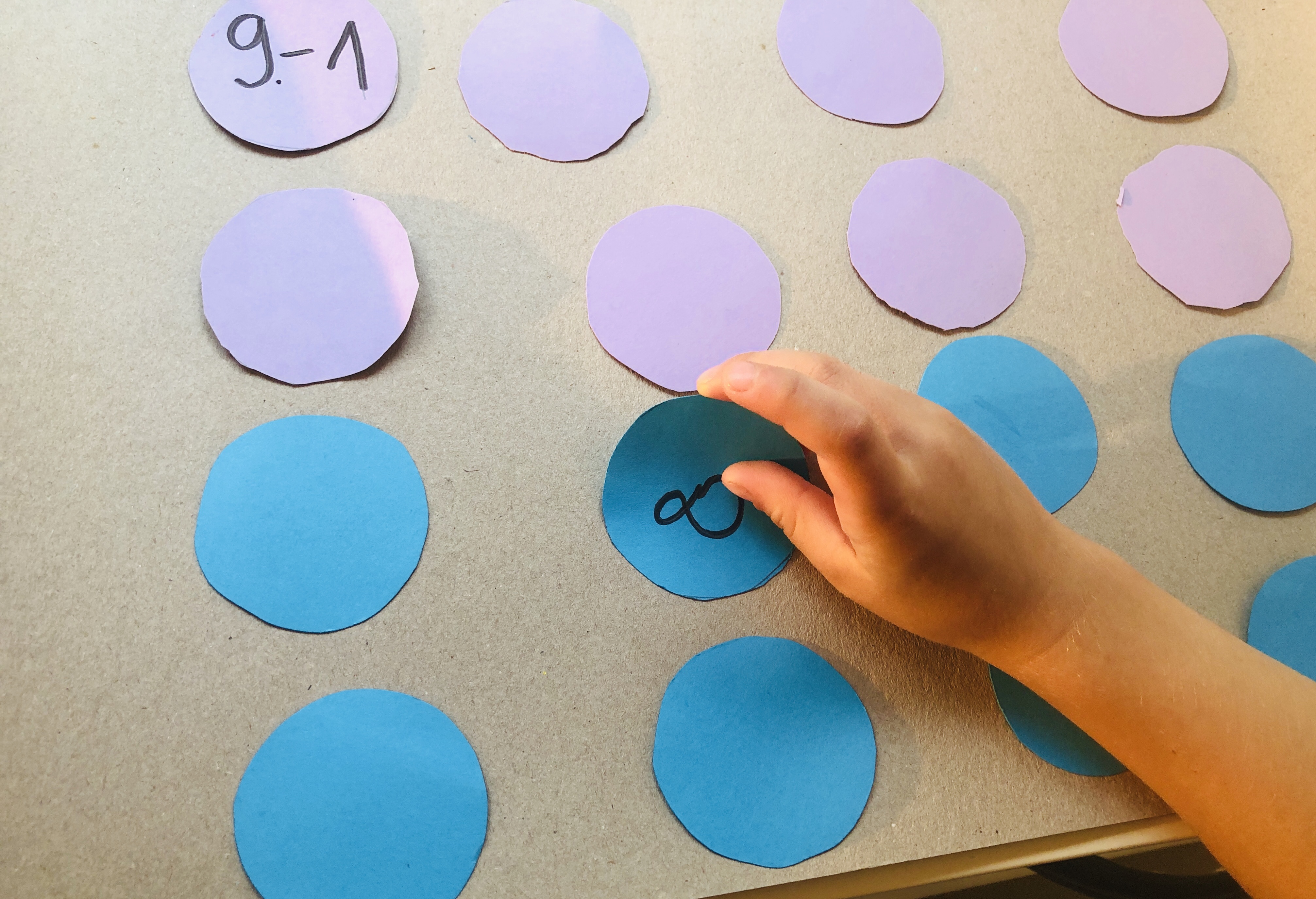
Variations
- With younger kids, you can start with numbers recognition and naming.
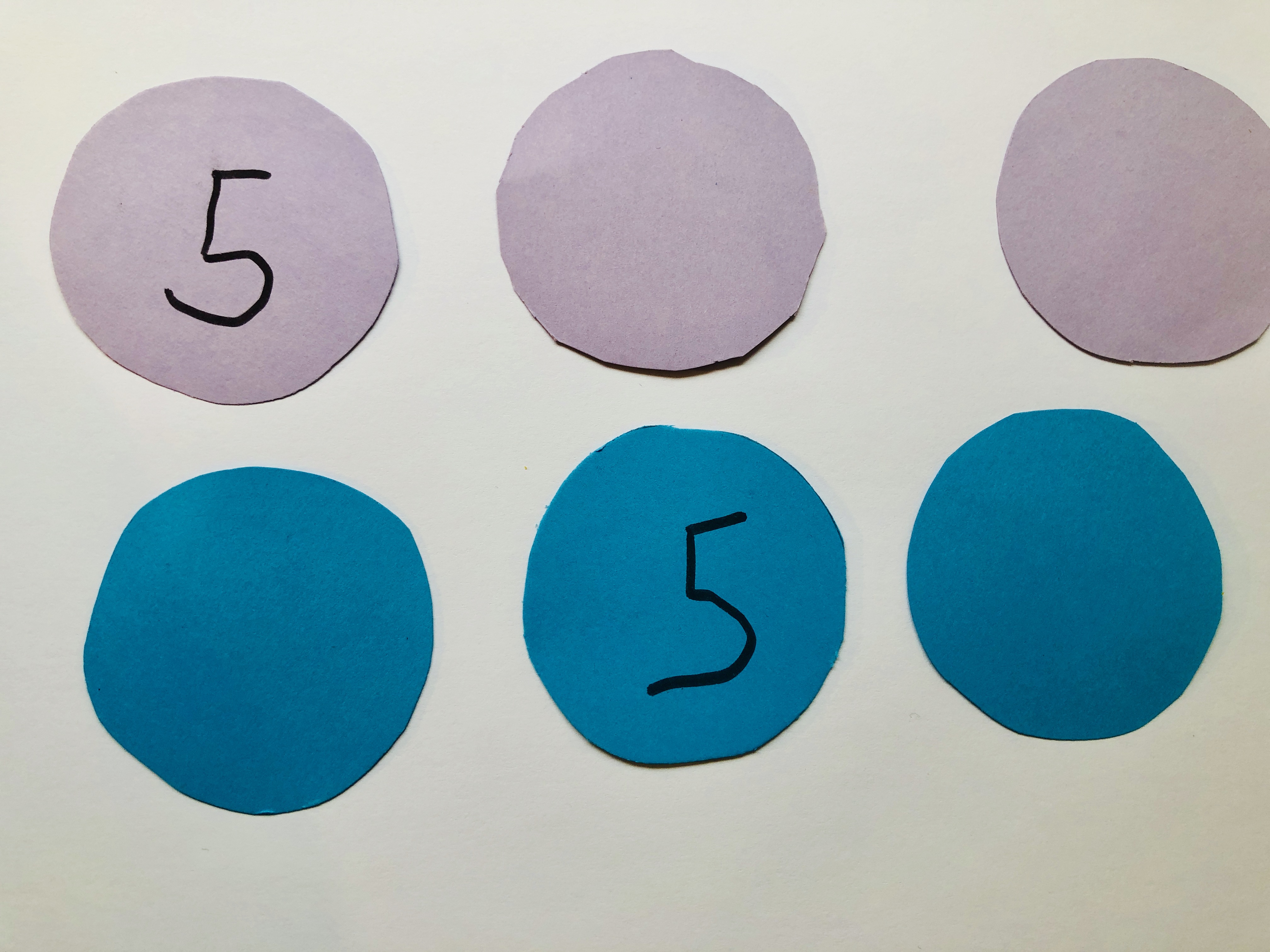
- A bit older kids can match numbers with quantities.
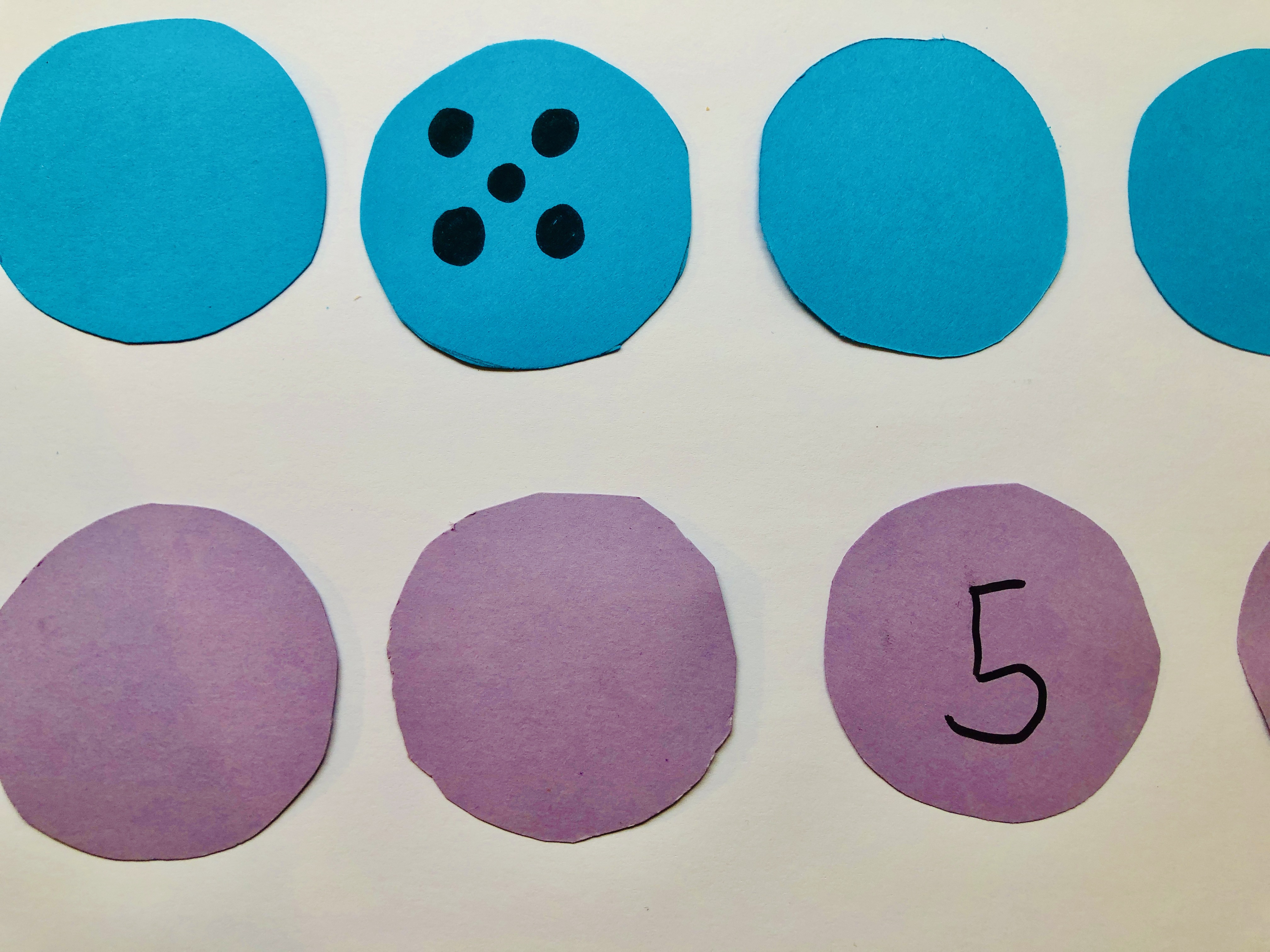
- If they like reading, matching numbers with words could be interesting.
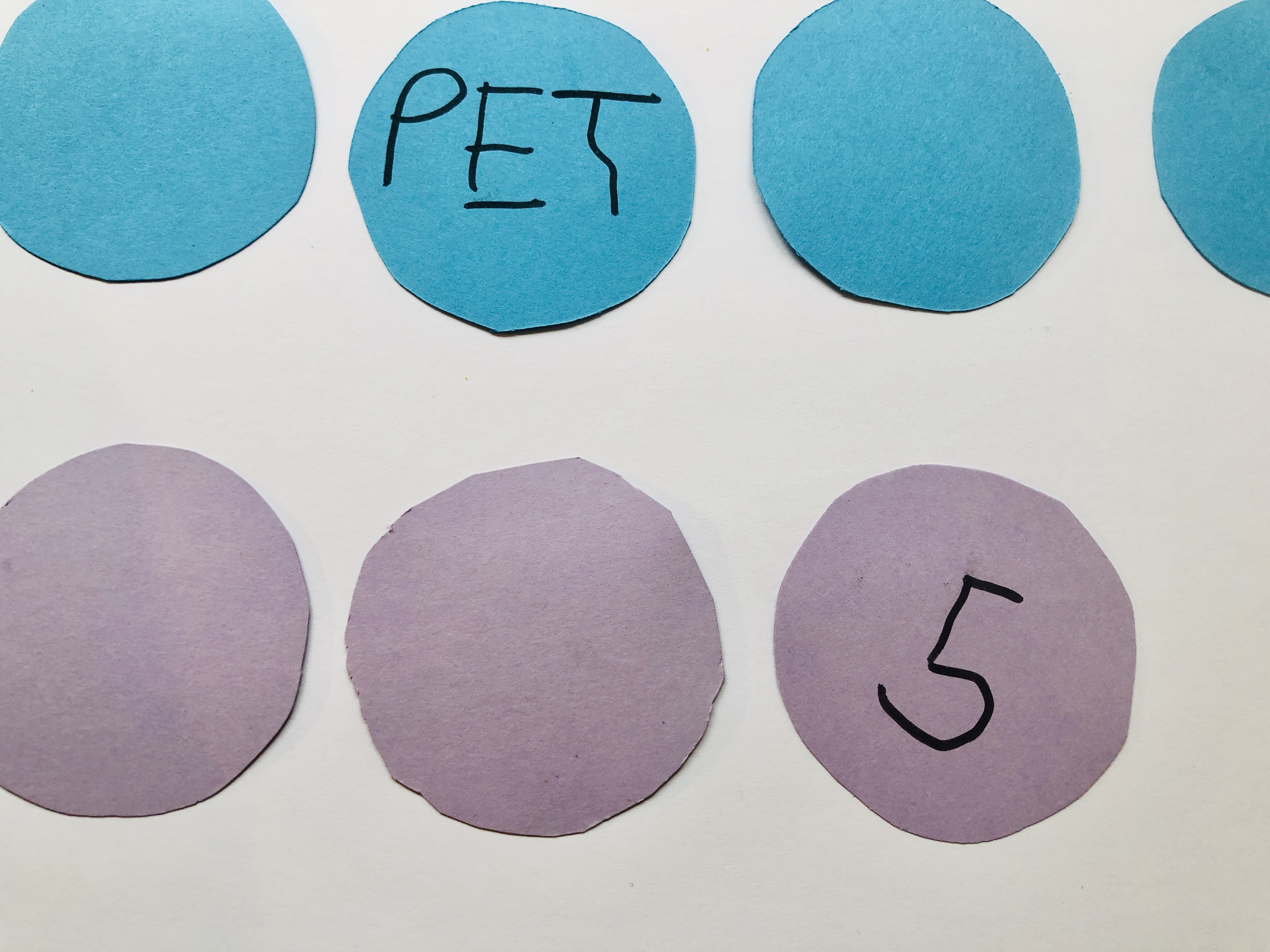
- Finally, you can play with different operations and introduce more math vocabulary (addition, subtraction, addends, minuend...)
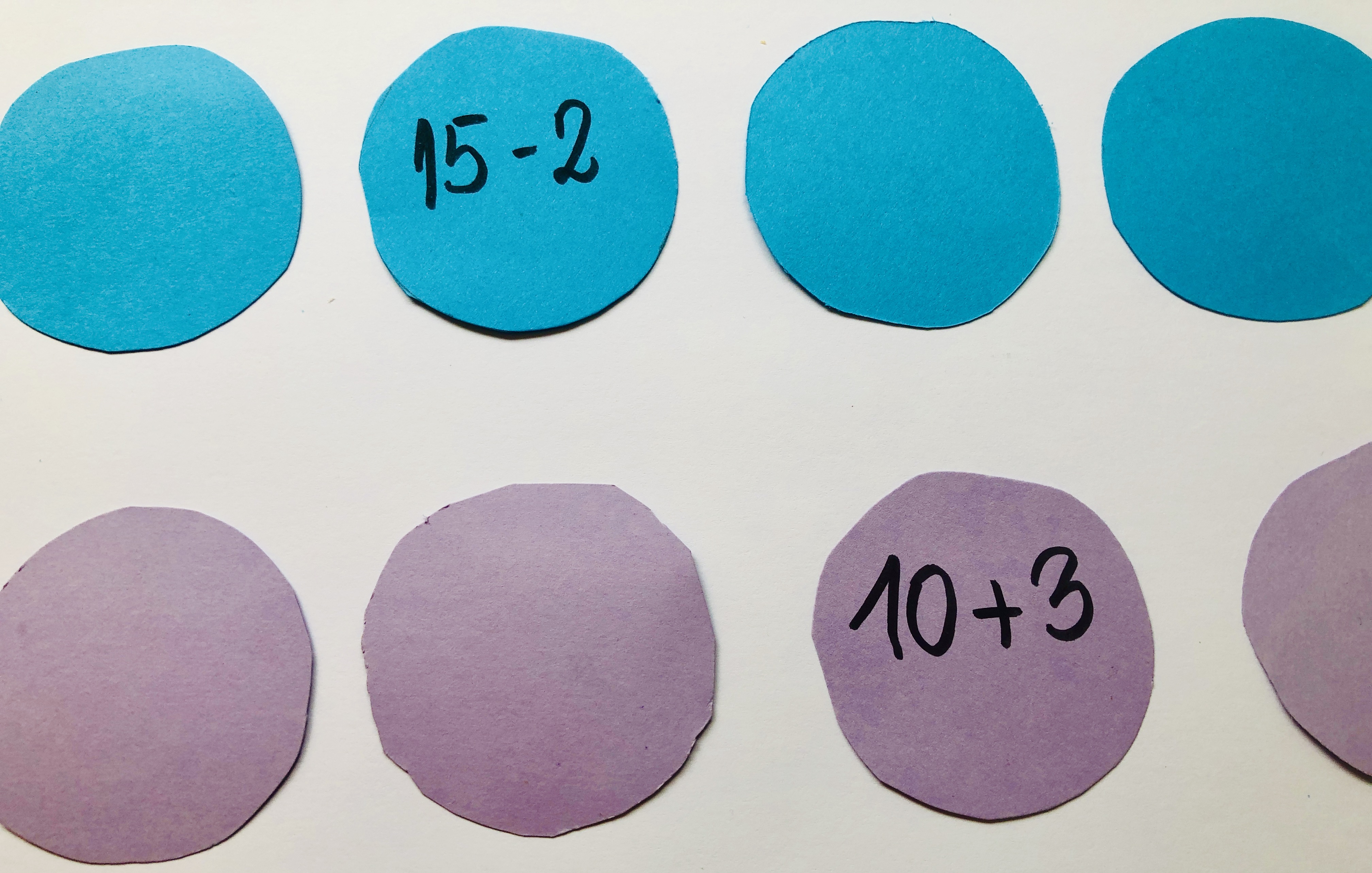
You can read more about developing the numeracy skill here.
